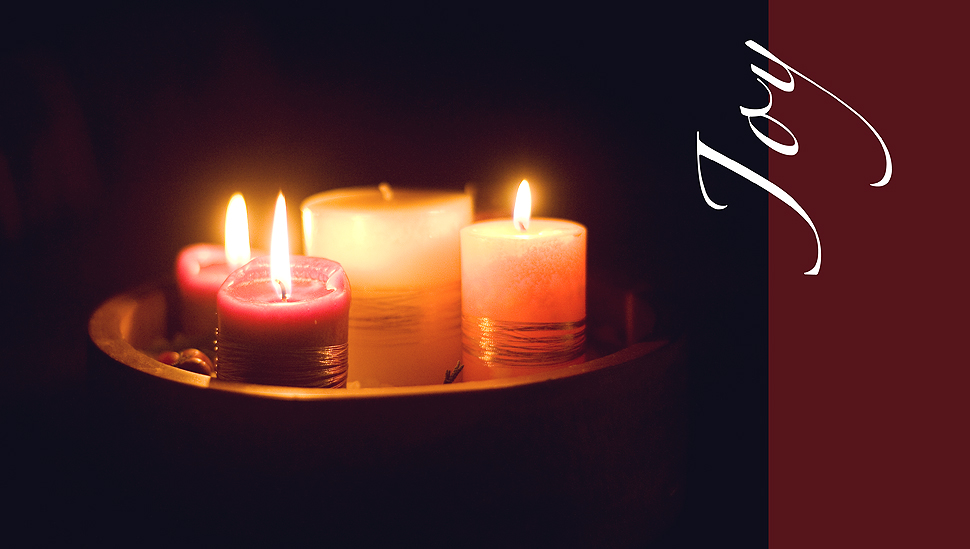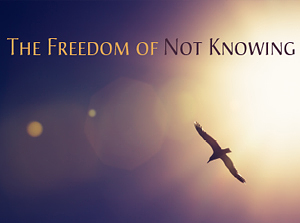Advent Daily Devotional: WEEK of JOY: Day 17- Tue, Dec 14
I have said these things to you so that my joy may be in you,
and that your joy may be complete. — John 15:11
Light is sweet, and it is pleasant for the eyes to see the sun.
— Ecclesiastes 11:7
______________________________________
For now, begin with the simple act of being present to whatever is going on within you and around you. Pay attention to your body and its experience.
For instance, engage your senses. What do you see? Hear? Smell? Feel? Taste? Ground yourself by taking this inventory of your senses.
Now focus on a few simple strategies to cultivate joy through bodily self-care.
Inhale. Hold your breath a moment. Exhale slowly. Breathe.
Mindful breathing offers healthful benefits. It lowers your heart rate and blood pressure, and helps regulate your body’s capacity to manage stress and fatigue. It reduces depression, burnout, and negative thinking. It boosts your capacity to manage chronic pain and positively affects the side effects of other illnesses or conditions such as diabetes.
Repeat your breathing cycle. Then repeat it again.
Now smile. Science urges that the act of smiling triggers healthy neurological responses. Floods your brain with positive, empowering chemistry. Improves your wellbeing psychologically and physically.
Joy is connected to your body-mind-spirit connections. While it grows out of spiritual, emotional, and psychological practices, it remains an embodied experience, too.
Let your senses ground you in your surrounds and in your own skin. Now inhale deeply. Hold your breath. Smile wider. As you exhale, blow out the Advent candles. — Rev Gail
______________________________________
To get the full value of joy you must have
someone to divide it with. ― Mark Twain
An age is called “dark,” not because the light fails to shine
but because people refuse to see it. – James Michener
Advent Day 5: Daily Devotional
Hope fosters comfort with stillness and silence, as aspects of not-knowing. In these times, we’re enduring personal pressures and communal, national and global stresses.
Hope supports resilience in a culture that offers round-the-clock data feeds. We give ourselves permission to unplug and turn down the noise. We need this capacity in any era, but certainly in these times, when our culture promotes 24/7 access to information and each other, with exaggerated extremes of emotion and perspective.
What if we slow it all down? Sometimes the constant stimulation provides a false sense of certainty. It also mimics intimacy.
Hope invites us into a time that can be quiet. It allows us to cope with lack of information. It enables us to wait to find out what comes next. It assures us that we will manage, even when we do not or cannot know the answer.
Hope allows us to stay centered and become comfortable with our own company. We learn to trust ourselves and each other, without external stimulation. We learn to catch our breath, and listen actively to the stillness rather than yearning for noise. And find out that in the stillness, we may come to learn and know more than we expected. — Rev Gail
He says, “Be still, and know that I am God.” — Psalm 46:10
Do not lose hope — what you seek will be found … Trust those that you have helped to help you in their turn. Trust dreams. Trust your heart, and trust your story. — Neil Gaiman
If you re-channel those energies into being aware of what is going on in the present moment, you will be able to make a breakthrough and discover joy and peace right in the present moment, inside of yourself and all around you.
— Thich Nhat Hahn
The spiritual task of life is to feed hope. Hope is not something to be found outside of us. It lies in the spiritual life we cultivate within. — Joan Chittister
Dum spiro, spero: While I breath, I hope. — Latin proverb

